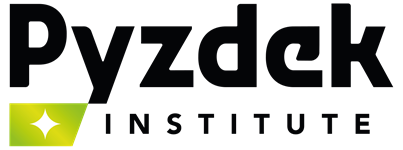New online products added that teach the Lean approach to operational excellence
The Pyzdek Institute has added two online Lean training classes to its portfolio of online courses on Process Excellence topics. The new courses are written and presented by Thomas Pyzdek, author of The Six Sigma Handbook, The Handbook of Quality Management and numerous other authoritative works.
Pyzdek Institute E-Learning
All Pyzdek Institute online lean training utilizes the latest e-learning technology and methods. “Although I have decades of experience teaching in classrooms, I realized that online e-learning was a fundamentally different way of teaching. I consulted with experts in e-learning as I developed the training,” said Pyzdek. “These are the same people who provide consulting to the University of Arizona for their e-learning. Their guidance and insights were invaluable in making my courses highly effective learning experiences.”
Among major providers of online Lean training, the Pyzdek Institute is the only one to utilize the popular Moodle Learning Management System. Worldwide there are over 54 million users enrolled in courses which use Moodle. Moodle allows organizations to carefully monitor the progress of all students, including lesson modules completed, resources downloaded, quiz results, and so on. With Moodle, when a student says that they have successfully completed their training, they can provide documented evidence to prove it. In addition, The Pyzdek Institute’s lesson modules are SCORM compliant, making it easy to integrate them into corporate learning management systems.
The Pyzdek Institute allows companies to have private areas on the training site so that communications among students, such as forum posts, are not visible to people outside of the company. Companies can also have designated Group Leaders who can help students enrolled in the training.
Complete Online Lean Training
The Pyzdek Institute’s Lean course consists of 11 modules covering the entire Lean body of knowledge. It is designed for people actually leading Lean teams and Lean implementation. According to Pyzdek, “Organizations benefit by implementing Lean before Six Sigma. Lean implementation can be done quickly using a simple tool set. Our Lean course provides these tools in a set of easy-to-use online training modules.” Topics include: mura/muri/muda, value, value streams and value stream mapping, A3 thinking, takt time, spaghetti diagrams, push and pull systems, 5S, constraint management, level loading, flexible processes, lot size reduction, Kaizen, quick changeover and SMED, and much, much more.
Online Lean Fundamentals Training
“Many organizations are interested in a 10,000 foot overview of Lean.” Pyzdek said. “That’s what our Lean 101 course provides. We want to introduce Lean to the organization and show them what it can do for them.”
The course, dubbed Lean 101, provides an overview of the Lean approach to process improvement. “Any new initiative is intimidating, until people understand what the initiative is all about. This course provides that background.” Pyzdek explains. The course is aimed at the people in the organization who will be impacted by Lean, but who may not need to be trained in the nuts-and-bolts of Lean techniques. For example, people who work in support organizations, people working in an area where lean is being applied, or people working in other areas of the company who need to know what Lean is, even if it’s not yet being employed in their area. These “stakeholders” learn the Lean philosophy, concepts and terminology and how these things come together to improve the workplace for them and for customers.
Lean 101 training is organized in three modules. Module 1 introduces Lean, provides a brief historical overview and context, and covers the principles of waste and value. Module 2 discusses value streams, flow, and push and pull systems. Module 3 presents continuous improvement, Kaizen, strategic and tactical considerations for Lean, and the synergistic relationship of Lean and Six Sigma. In addition to a course reading assignment, each module contains a narrated video lesson, a storyboard, and a self-scoring quiz. The company estimates that completing all of the coursework will require approximately four hours of student effort, including online and off-line work. Moodle tracks each student’s progress through the training and provides detailed reports. Training is self-directed and self-paced. Students are allowed 90 days to complete the 3 modules.
Persons interested in complete details, or in ordering the training, should click here.

Leave a Reply